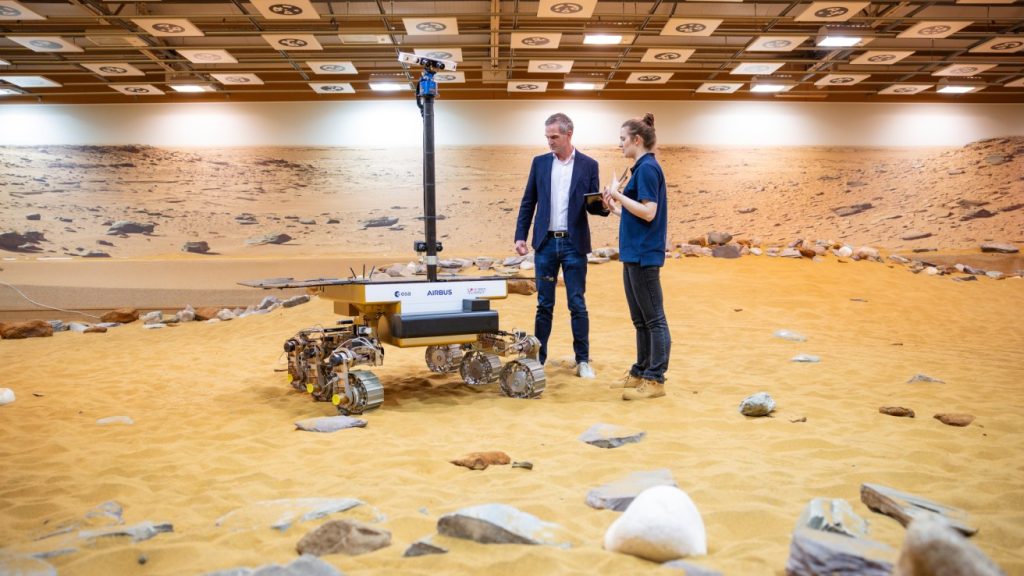
The United Kingdom is set to make a historic entry into the realm of interplanetary exploration with its recent commitment to landing Europe’s first rover on Mars. Airbus UK has successfully secured a £150 million contract to engineer the critical landing platform for the Rosalind Franklin rover. This monumental project, developed entirely in Stevenage, is poised to elevate the UK’s standing in international space exploration.
Ambitions and Technological Breakthroughs
The mission, spearheaded by the European Space Agency (ESA) with support from NASA and the UK Space Agency, represents a significant technological and scientific endeavor. Scheduled for launch in 2028 and set to touch down on the red planet in 2030, the Rosalind Franklin rover’s mission is to unearth clues of ancient or existing life on Mars. Its design incorporates advanced robotics and autonomous navigation systems, enabling it to drill two meters beneath the Martian surface—a depth unprecedented in previous missions.
This capacity to probe deeper into Mars’s crust is crucial for seeking ancient microbial life, offering a potential breakthrough in our understanding of life beyond Earth. Dr. Louisa J. Preston, a planetary scientist engaged in the mission, emphasized the rover’s capabilities: « Rosalind Franklin will be the first to drill two meters into the Martian crust, analysing samples up to four billion years old. »
The UK’s Growing Influence in Space Technology
The successful completion of this mission will not only secure Britain’s historical imprint on Martian exploration but also significantly boost its space industry. The project brings with it the promise of around 200 high-skilled jobs, reflecting the positive economic impact of such cutting-edge scientific endeavors.
Initially slated for a 2022 launch, the mission faced delays due to geopolitical developments, leading ESA to sever ties with Russia following its invasion of Ukraine. Consequently, the UK and its international partners stepped up to replace the Russian-supplied components, entrusting Airbus with the development of the landing system. This move is seen as a pivotal step in strengthening the UK’s autonomous capabilities in space technology.
Economic and Scientific Prospects
The potential economic benefits extend beyond immediate job creation. Technology Secretary Peter Kyle underscored the importance of the project, stating: « Landing the first ever home-grown rover on Mars will not only help Britain make history but also bring hundreds of highly skilled jobs and investment as we secure our future through innovation. » The mission’s success is poised to galvanize further investment and research within the UK space sector.
Additionally, the UK Space Agency has introduced a new £17 million national space innovation program aimed at fostering further research and technological advancements. This initiative is expected to place the UK at the forefront of space exploration, demonstrating its capabilities in engineering and technological innovation.
The Broader Impact of the Mission
Beyond its immediate scientific aspirations, the Rosalind Franklin mission is set to redefine the UK’s position on the global stage. If successful, it may inspire a new generation of scientists and engineers, fostering a climate of innovation and exploration reminiscent of historical space races.
This project underscores the synergy between technological ambition and international cooperation, paving the way forward in humanity’s quest to uncover the mysteries of Mars. As the launch date approaches, anticipation continues to build, heralding what is set to be a landmark achievement in both European and global interplanetary exploration.




